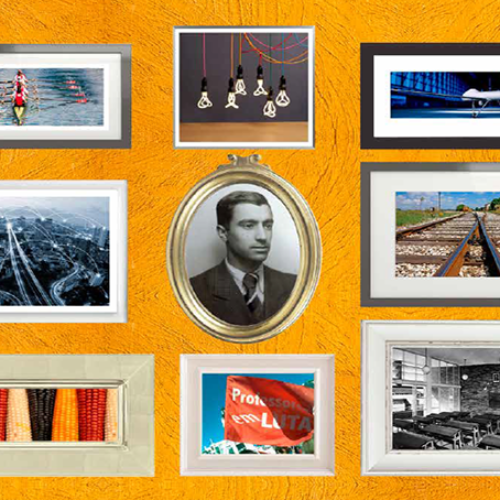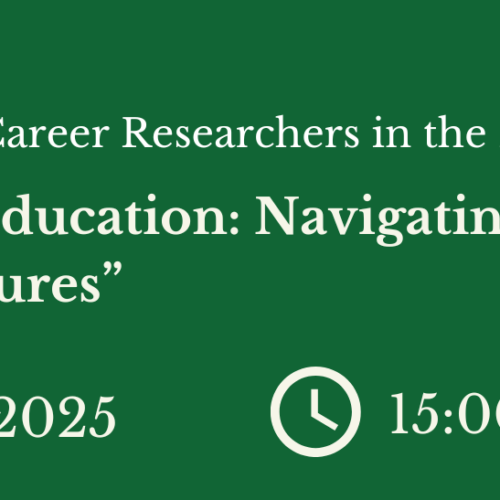International Conference on the Status of Teacher(s) and Conditions for Teaching: Facts, issues and challenges. Université Lumière LYON 2 – 8, 9, 10 January 2015
This international symposium on education is intended for the community of researchers in educational institutions encompassed by a broad range of research interests: historians, sociologists, educational specialists and teachers, philosophers, comparative analysts, etc.
Closely examined in France in recent decades, both by researchers and by administrative and political managers, or through surveys contracted to polling institutions, the status of teacher(s) has been the subject of studies and reports that have provided an overview of the profession in terms of changes in professional identity and the problems of societal recognition encountered by teachers worldwide. The well-enshrined expression a “teacher’s status” constitutes a useful shortcut that one cannot entirely do without, but which should preferably be used in the plural, given how diverse teaching categories and circumstances are, despite the existence of a common core. This is all the more the case since this professional sector has never been so diverse in terms of status and training, and since it now has to co-operate with an ever-increasing variety of professionals. Use of the plural is also necessary at the level of international comparison, such as in the OECD publication Education at a Glance, which provides access to comparisons in statistical terms. Making specific reference to this plural use, the symposium will focus primarily on broad-scale approaches and those offering a comparative view, both intra-nationally (a view of one teaching category highlighted relative to another) and inter-nationally. What can we learn from analyses of teachers’ status that are at a remove from what we experience ourselves?
Historians may home in on teachers’ status in the 19th and 20th centuries. They would do well not to overlook the importance of reports and studies such as those mentioned above. Sociologists may bring to the table contemporary teachers’ working conditions, based on a range of problems (the gender problem, the “new teachers” problem, the problem of the impacts of new forms of governance, etc.).
Also under consideration here are teaching conditions, seen from a didactic and pedagogical perspective, as well as in a more general philosophical sense (Blais, Gauchet, Ottavi , 2008). This is because teachers’ status, juxtaposed with teaching conditions, now arises inevitably as a new societal issue, both in the context of a generalised “pedagogisation” of our society (Bernstein, 2001, Tyler, 2004) and in that of a lowered recognition of scholastic achievement and teaching practices, and of concerns over learning techniques. What has been called the “form of teaching” (“forme scolaire”) by some social historians merits re-examination. Are we witnesses to a dwindling of this notion and its future replacement by other “forms”? Post-modern authors have maintained that “The old principle whereby the acquisition of knowledge necessarily involves shaping the mind (Bildung), and even the person, is becoming obsolete and will become more and more so.” (Lyotard) And we would be remiss to overlook the concerns raised by the digital revolution and the growth of e-learning and open learning.
Under what conditions might teachers’ status avoid leading to the abandonment of teaching as an institution due to competition from other cultural influences? How do teachers deal with new issues of cultural diversity and with special educational needs, or with lay models being called into question? How do they go about shouldering the tasks of assessing and standardising skills demanded by changes of course in public education systems? What type of impact may new technologies have on any eventual change in the “form of teaching” and to what extent? These are all key questions, and the list goes on, that teachers and educational specialists can address (seeking to make their answers as generally applicable as possible).
What conditions to be able to teach, in the fundamental sense of the word, now seem to be a prerequisite for the future of one or several new teacher’s/teachers’ status? How do new priorities given to basic principles (the purpose of schooling, of knowledge, etc.) and network-based operations that are more horizontal, affect the notions of equality, the expressions of equitable schooling and the critical faculties of teachers? What imperatives and which principles not rooted in the past, but truly in touch with the modern world, should be brought into play? Along with researchers from other fields, philosophers will also be asked to contribute to this discussion.
The conference will be divided into various symposiums. The conference will take place on 8, 9, 10 January 2015. There will be:
– symposiums set up by conference organisers based on individual proposals for talks, involving the subjects suggested below (S1 – S10). There may be more than one of these symposiums, depending on the number and focus of the proposals received.
– pre-defined symposiums proposed for presentations by a panel dealing with the same subjects S1 – S10 (1 moderator, with 5 participants as a minimum and 8 maximum).
Opening conference on Tuesday 8th a.m : Claude LESSARD
Conference on Friday 9th p.m : Philippe MEIRIEU
Conference interdisciplinary conclusions on Saturday 10th a.m.
Scientific committee : Thérèse Assude (U. de Provence), Hélène Buisson-Fenet (CNRS-ENS-Lyon), François Baluteau (U. Lyon 2), Christian Buty (U. Lyon 1) , Françoise Carraud (U. Lyon 2), Gilles Combaz (U. Lyon 2), Laurent Cosnefroy (IFE-ENS Lyon), Linda Evans (U. of Leeds), Joëlle Fanghanel (U. of West London), Philippe Foray (U. St-Etienne), Elisabeth Flitner (U. Potsdam), Rita Hofstetter (U. Genève), Pierre Kahn (U. Caen), Denis Kambouchnner (U. Paris 1), Alain Kerlan (U. Lyon 2), Françoise Lantheaume (U. Lyon 2), Joël Lebeaume (U. Paris 5), Claude Lessard (U. Montréal), Eric Mangez (U. catholique Louvain), Frédéric Mole (U. St-Etienne), Denis Poizat (U. Lyon 2), Patrick Rayou (U. Paris 8), Luc Ria (IFE-ENS-Lyon), André-D. Robert (U. Lyon 2), Philippe Savoie (IFE-ENS Lyon), Jean-Yves Seguy (U. St-Etienne), Stéphane Simonian (U. Lyon 2), Richard Wittorski (CNAM), Agnès Van Zanten (CNRS-Sciences po Paris).
Organization committee : Yoann Adler, Nicolas Baltenneck, Hélène Croce-Spinelli, Sabine Coste, Samia Langar, Françoise Lantheaume, Denis Poizat, Marina Randriamiarisoa, Jean Rakovitch, André-D. Robert, Stéphane Simonian.
List of symposiums:
S1: The teaching profession over time: career paths, beginnings and endings
S2: Changes in teaching conditions
S3: Do we hear a “death knoll for the time of teachers” in this era of digital technology and seeing “withering” of our form of teaching?
S4: Knowledge, means, teaching work and status of teachers
S5: Conditions enabling one to teach and educate
S6: Teachers and new forms of governance
S7: The specific nature of teaching conditions at the university level
S8: Role definition for teachers in the creative realms
S9: Teaching conditions and forms of involvement
S 10: Teaching conditions in a context of diversity and inequality
Languages allowed: French and English.
Proposals should be sent to the organisers at the following e-mail addresses:
andre.robert@univ-lyon2.fr
J.Rakovitch@univ-lyon2.fr
marina.randriamiarisoa@univ-lyon2.fr
They should contain a title and 5 key words, and be in the form of an abstract no more than 200-250 words in length.
Deadline: 30 May 2014.
Conference registration fees: Participants – € 200 before 30 September; € 250 after this date, Students – € 100.
NB: The scientific committee will define the form of a scientific publication resulting from the symposium.
Selected papers from PHD students will take place on a special issue of the young researchers online journal Inter Pares (ISSN 2261-186 X) carried by the Doctoral School EPIC n° 485. http://recherche.univ-lyon2.fr/epic/
About author
You might also like
World Education Research Association Focal Meeting 2020
The World Education Research Association (WERA) announces the Call for Submissions for the Focal Meeting to be held in Santiago de Compostela, Spain from 1 to 3 July 2020. WERA
HISTEDUP – Diálogo(s) com a educação
The Portuguese Association for the History of Education (HISTEDUP) invites you to a conversation on the history of education that will take place on Friday 17 January 2025 with Professor
CFP The Time of Teachers | Le Temps des Professeurs | El Tiempo de los Maestros. Deadline: Jul. 2, 2017
Conference The Time of Teachers | Le Temps des Professeurs | El Tiempo de los Maestros September 29-30, 2017 Oporto, Portugal The Centre for Research and Intervention in Education



